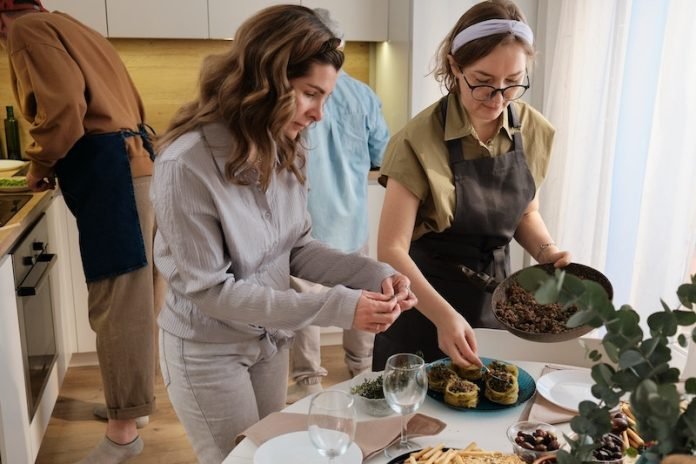
Dementia is a word doctors use to describe a group of symptoms that can include trouble with memory, difficulty speaking, and problems with solving tasks.
It can be caused by various diseases, and it affects many people, especially those who are very old.
The Importance of Friends
Imagine if having a good number of friends could keep your brain healthy as you grow older. Sounds interesting, right?
Researchers from UCL (University College London) recently conducted a study and found something fascinating.
They found that people who have an active social life in their middle age are less likely to have dementia when they grow old.
The Study on Social Life and Dementia
In this study, researchers from different countries, including the UK, Finland, the US, France, New Zealand, and Japan, worked together.
They examined lots of information from different studies done across the world. They wanted to understand if being socially active can help keep our brains healthy and prevent dementia.
What Did They Find?
The results were quite amazing. The researchers found that people who are socially active when they are middle-aged and older have a 30-50% lower chance of developing dementia later on.
This means if you have a lively social life, where you regularly spend time with your friends, you might have a lower chance of getting dementia when you get older.
They also found that people who are lonely have a higher chance of getting dementia.
This might sound a bit scary, but it actually gives us a valuable clue about how to keep our brains healthy. It tells us that having friends and spending time with them could be an excellent way to keep our brains strong as we age.
Why Does Having Friends Help?
Scientists think there are a couple of reasons why having a strong social life might help keep our brains healthy. One reason is that being social might help to build what’s called a “cognitive reserve.”
This is a bit like having a savings account in your brain. The more you use your brain for different activities, like talking and laughing with friends, the more “savings” you build up.
If you get a disease like dementia, having a good amount of “savings” could help your brain stay strong for longer.
The other reason is that being social might help keep our brains healthy by reducing stress and helping our brain’s blood vessels work better.
We all know that feeling stressed isn’t nice. When you’re stressed, your body produces chemicals that, over a long time, can be harmful to your brain.
Having friends to talk to and share experiences with can help reduce feelings of stress.
How Can We Help Everyone Stay Social?
The researchers also had some ideas about how to help everyone stay social and reduce their chances of getting dementia.
They suggested a few things that could be done, like creating places for people to meet and talk, like community centers. They also talked about the idea of “social prescribing.”
This is where doctors and nurses suggest activities that could help you meet new people and make friends. They also suggested encouraging older people to volunteer or continue learning, to help them stay socially active.
Let’s Remember
Our brains are amazing, and there’s still a lot we don’t know about them. But studies like this one are helping us learn more about how to keep our brains healthy as we age.
It seems like having a strong social life might be one of the keys to keeping our brains healthy. So, let’s keep making and keeping friends because it’s not only fun, but it also helps our brains!
If you care about brain health, please read studies about how the Mediterranean diet could protect your brain health, and Omega-3 fats and carotenoid supplements could improve memory.
For more information about brain health, please see recent studies about antioxidants that could help reduce dementia risk, and higher magnesium intake could help benefit brain health.
The study was published in Nature Aging.
Copyright © 2023 Knowridge Science Report. All rights reserved.




